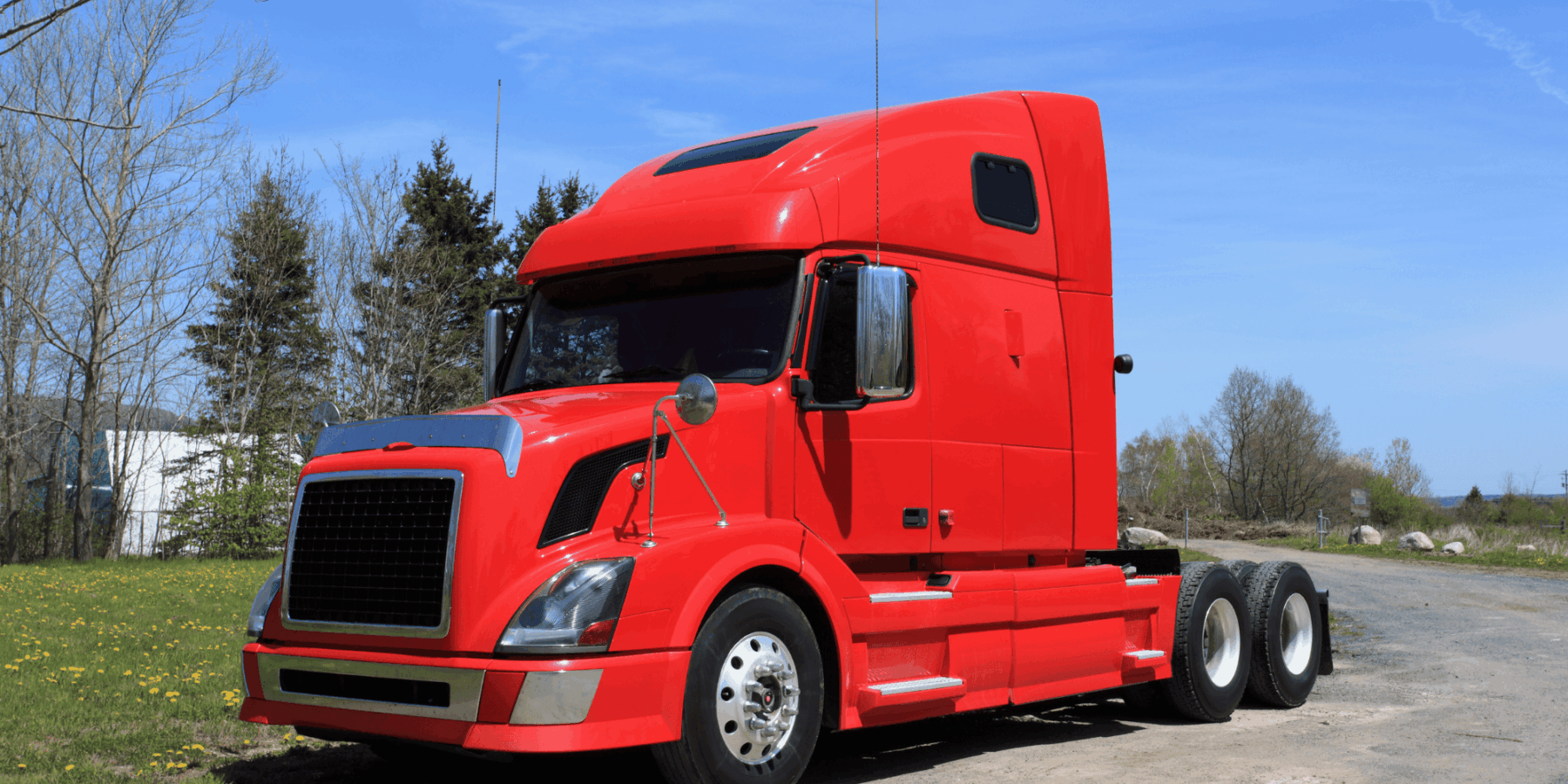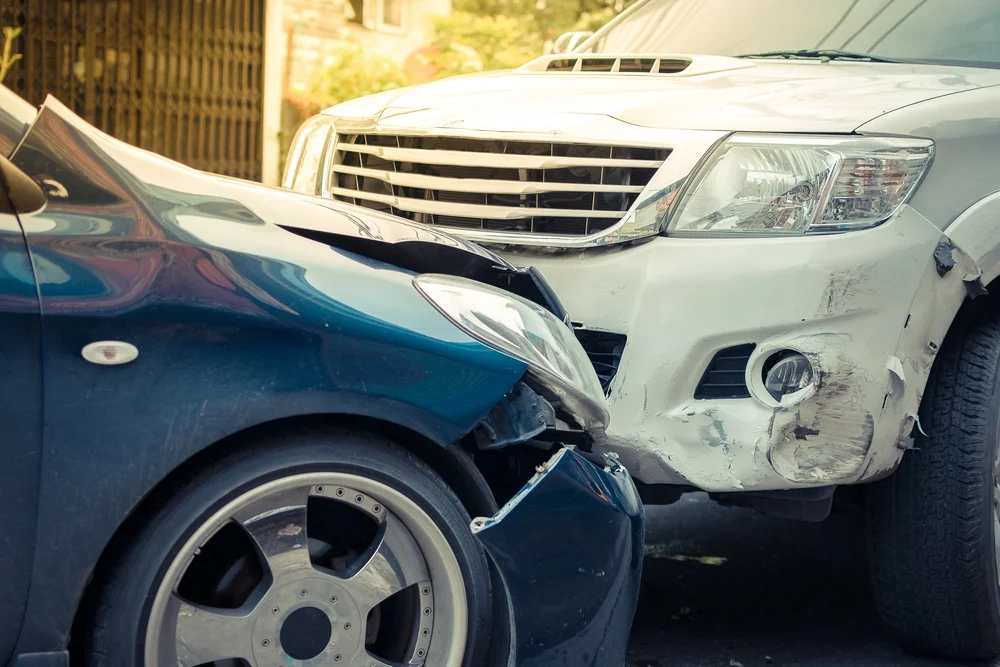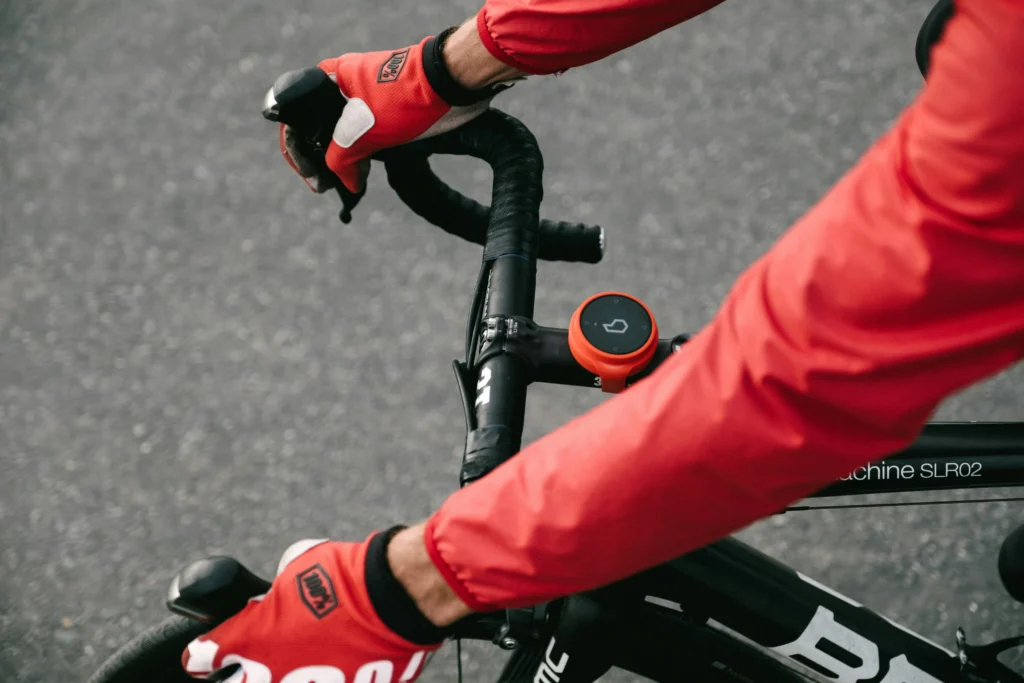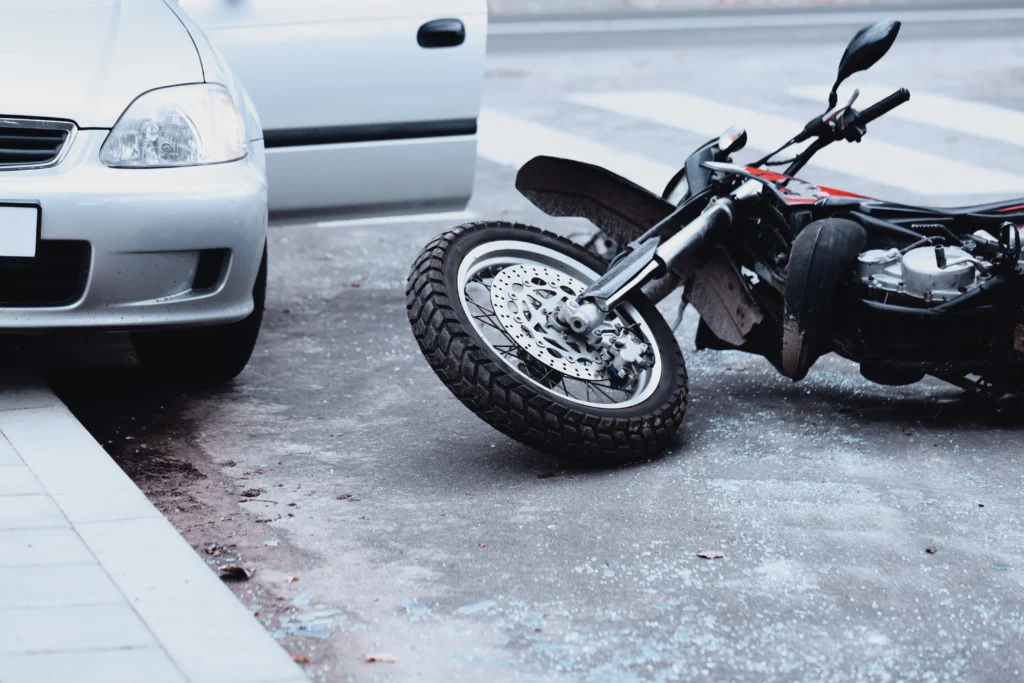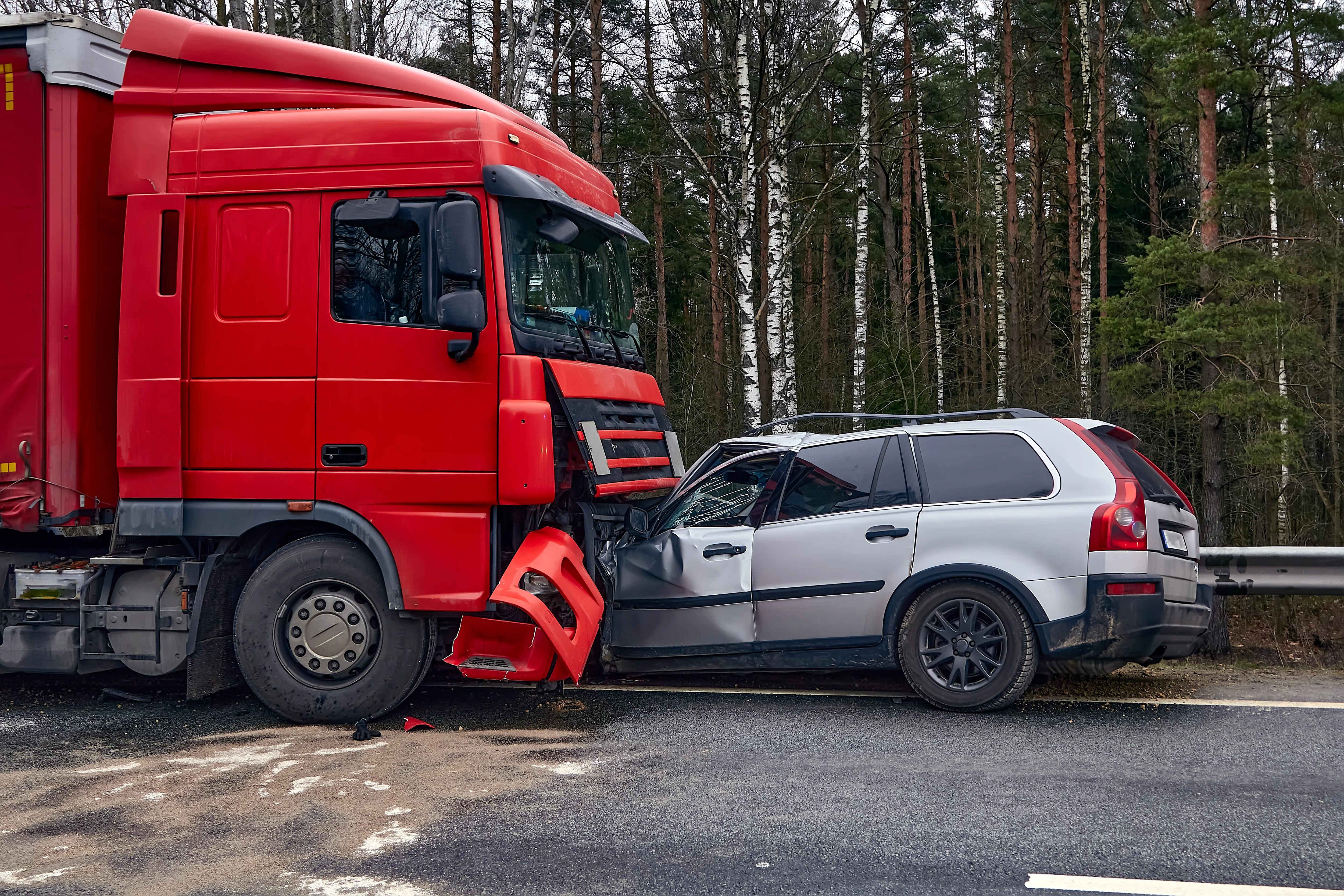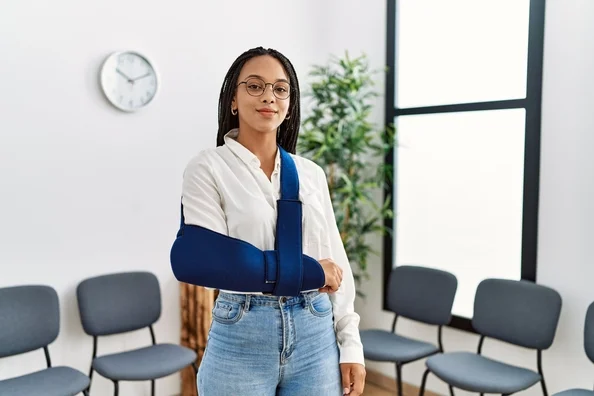Pullman Truck Accident Attorneys Who Take On Commercial Carriers With Force
Truck wrecks are not unusual in Pullman, they’re increasing. Timber trucks, freight haulers, and farm semis congestion narrow streets like Bishop Boulevard and Grand Avenue on a regular basis. If these oversized trucks crash into drivers, cyclists, or pedestrians, the damage is typically extensive. Bernard Law Group moves fast. We handle commercial vehicle wrecks all over Whitman County and obtain maximum recovery from trucking firms and their insurance providers.
Pullman’s geography, flanked by wheat fields and hills, is unique traffic risk. Washington State University traffic analyses report truck traffic volumes grow during peak shipping times. We know how such conditions impact liability. Our lawyers don’t stall or wait. We build strong injury claims on facts, pressure, and urgency.
Call now at 206-312-3908 to speak directly with a Pullman truck accident attorney. The call is free. We only get paid if you win.
Truck Accidents in Pullman Linked to Poor Road Layout and High Freight Volume
Pullman truck accident cases often begin on tight city roads never built for industrial traffic. Logging rigs and long-haul semis thread through Grand Avenue, Bishop Boulevard, and Stadium Way every day. One mistake in these confined corridors leads to rear-end crashes, rollovers, and intersection strikes. At Bernard Law Group, we use firsthand road analysis and legal pressure to hold negligent operators accountable.
Trucking companies claim these routes are manageable. Our injury cases show otherwise. Pullman’s limited infrastructure, blind turns, and narrow shoulders create risks that freight carriers consistently underestimate. We show how road limitations and driver errors combine to cause collisions, then we use that evidence to demand real results.
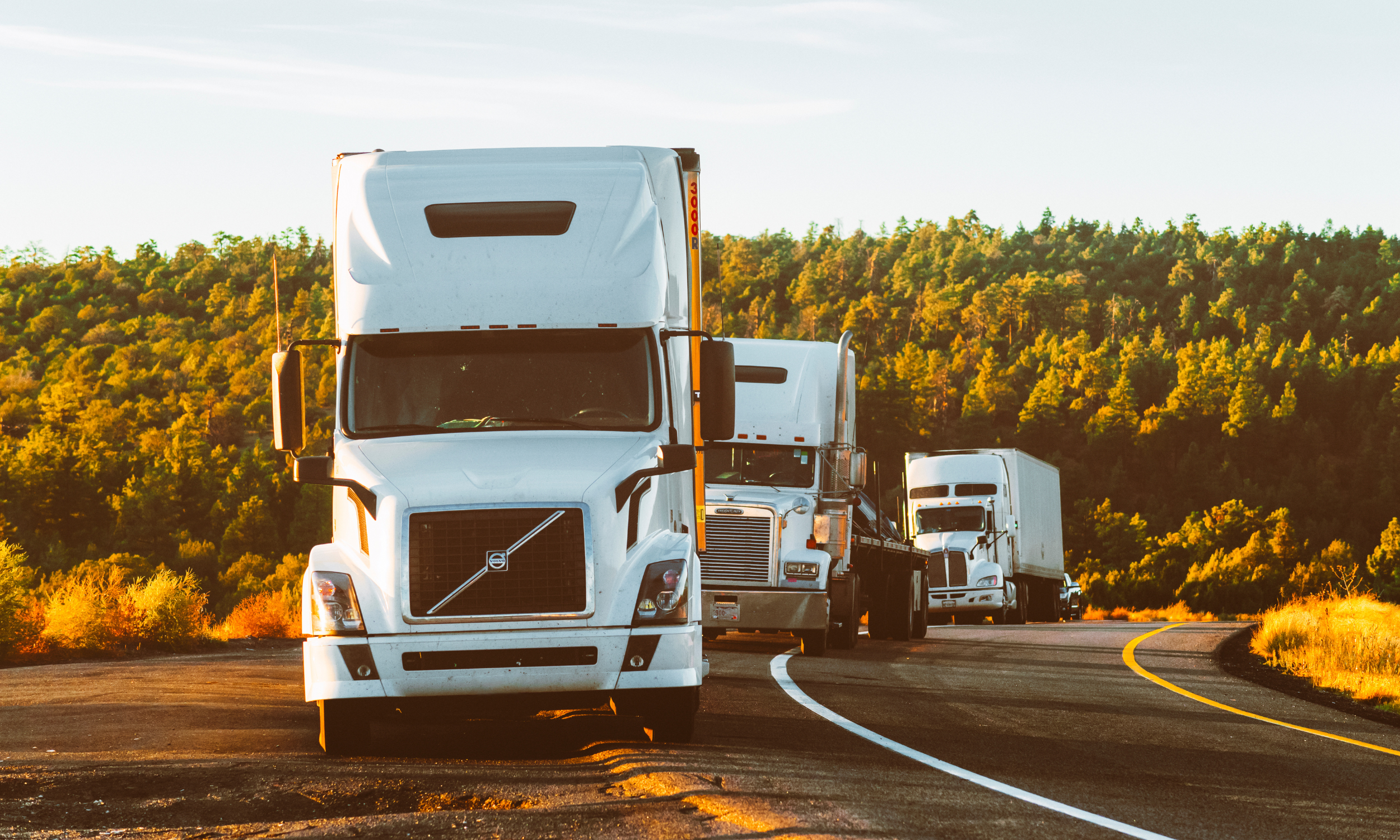
Read the City of Pullman’s transportation plan to see how current roads conflict with rising commercial vehicle use.
Pullman-Moscow Regional Airport Truck Traffic Creates Collision Clusters
Truck drivers navigating Airport Road and the Pullman-Moscow corridor face tight turns and merging hazards. This zone combines rural access with airport logistics, creating conditions that overwhelm inexperienced or distracted operators.
Our team investigates these crash scenes immediately. We capture dashcam footage from transit buses, preserve 911 dispatch call logs, and map turn radii. We also pull crash data from the National Highway Traffic Safety Administration to strengthen liability claims.
Rear-End Crashes Near Airport Road Caused by Fast Freight Approaches
High-speed commercial traffic entering Pullman from rural roads frequently results in rear-end collisions at Airport Road intersections. These crashes often involve tractor-trailers misjudging vehicle distances or ignoring reduced speed zones.
We use truck sensor data and driver hour logs to show fatigue and brake delay. That evidence, combined with aerial road mapping, helps us expose patterns of corporate negligence tied to training failures or overworked schedules.
Terre View Drive Serves as a Dangerous Artery for Pullman Trucking Routes
Terre View Drive feeds traffic into the heart of Pullman. Trucks hauling supplies to Washington State University and local grain terminals crowd this stretch with little margin for driver error. When a freight vehicle drifts into oncoming lanes or speeds through a curve, the result is a high-impact wreck.
We secure traffic enforcement data and track inspection records through the U.S. Department of Transportation. Then, we reconstruct how the crash happened and how it could have been prevented by better routing or maintenance practices.
Commercial Drivers Often Violate Safety Margins Along This Stretch
Freight companies send heavy rigs into this area with little regard for spacing requirements. Many fail to maintain proper stopping distance when following sedans or pickups, especially during wet conditions common in Pullman.
We present speed tracking, vehicle weight logs, and witness statements to show how close tailgating leads to catastrophic outcomes. This data gives juries and insurers a clear picture of why semis must follow safety regulations on suburban streets.
Grand Avenue and Steptoe Street Intersections Pose Constant Risk
Pullman’s busiest retail and school-adjacent intersections lie along the Grand Avenue corridor, where trucks compete for space with delivery vans, passenger cars, and crossing students. These mixed-traffic zones often produce side-impact collisions when trucks attempt turns without a wide berth.
We know where city-installed cameras operate and how to obtain the footage before it’s overwritten. Using those visuals, we document improper lane usage, missed turn signals, and failure to yield. We back this with code enforcement records from Pullman’s public works department, proving that certain locations have a history of crashes involving freight traffic.
Semi-Trucks Make Wide Turns Into Crosswalks Without Warning
A frequent cause of injury on Grand Avenue involves trucks swinging wide into crosswalks at intersections near campus housing or shops. These turn maneuvers trap pedestrians or sideswipe vehicles legally crossing on green.
Our firm works with local businesses to pull security video, then compares the footage against commercial driving regulations outlined by the Federal Highway Administration. These details build powerful evidence for fault and help drive up settlement value in serious injury cases.
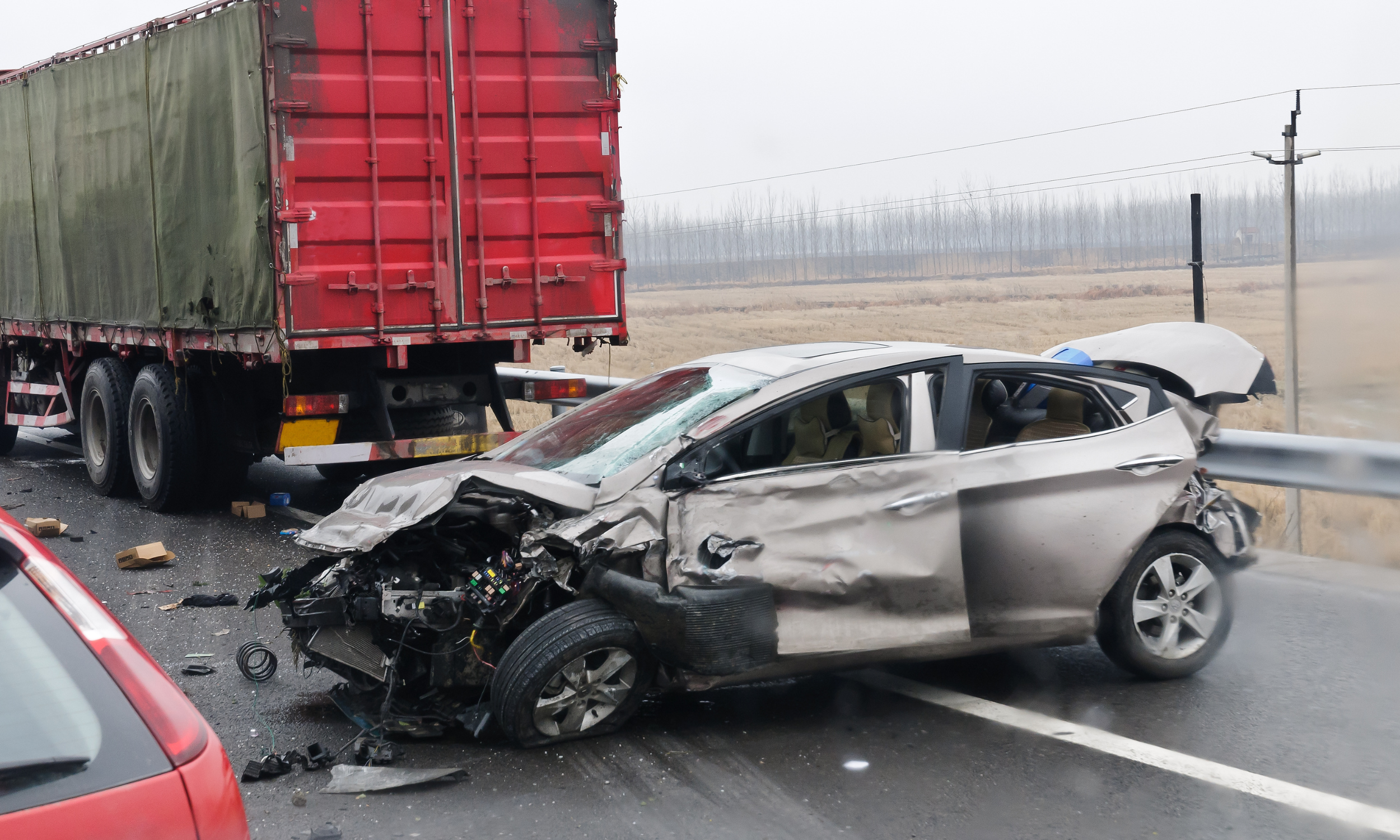
Pullman Truck Accident Claims Involving WSU Students and Campus Corridors
Heavy truck traffic moves through Pullman’s core, often within walking distance of student housing and classroom buildings. Washington State University’s population changes the rhythm of local traffic. During the school year, pedestrian flow spikes, while delivery vehicles and semis continue to navigate the same congested routes. When freight drivers misjudge a turn or fail to yield in crosswalks, student lives are put at risk. Bernard Law Group builds Pullman truck crash claims that reflect those local realities and hold carriers accountable.
We represent students hit while walking to class, biking near Stadium Way, or driving along roads crowded by oversized commercial vehicles. Our legal team knows where truck danger zones and campus congestion overlap. We use city traffic camera footage, student witness reports, and emergency service logs to expose unsafe commercial driving behavior near WSU.
Explore recent campus-area traffic safety research from the University of Washington’s Transportation Center for more insight on university town traffic risks.
Pullman Truck Collisions in Campus Crosswalks Near Stadium Way
Stadium Way runs through WSU’s academic center and sees hundreds of pedestrian crossings daily. Tractor-trailers and box trucks frequently use this route to access downtown Pullman or make deliveries. The combination of high-speed commercial traffic and foot-heavy intersections often results in devastating collisions.
At Bernard Law Group, we respond immediately to these crash sites. We gather data from school surveillance cameras, Pullman Police Department records, and 911 calls to reconstruct what happened. Many drivers claim they did not see the pedestrian. Our job is to prove that they had every opportunity to slow down and chose not to.
Student Pedestrian Injuries Caused by Turning Semis
In many cases, commercial vehicles attempt wide turns near crosswalks while students legally cross the street. These turns cause rear-wheel sweep accidents that pin or strike pedestrians. We present those facts clearly and build a case that proves preventable harm.
We also request delivery schedules, dispatch logs, and route history from the trucking company. These records show whether the driver was rushing to meet a deadline or operating in violation of time-on-duty limits outlined by the Centers for Disease Control and Prevention, which studies fatigue and injury in transportation.
Campus Area Parking Lot Truck Strikes Lead to Severe Injuries
Pullman’s parking areas serve as both delivery stops and pedestrian walkways. Students walking to residence halls or campus buildings often face blind corners and truck paths that lack clear signage. In these confined zones, truck operators sometimes reverse without a spotter, striking pedestrians or parked vehicles with force.
Our team collects vehicle surveillance from parking decks, apartment complexes, and university offices. We examine whether drivers followed basic safety protocols or ignored posted warning signs. Then, we compare those actions to compliance requirements outlined in commercial carrier guidelines.
Off-Campus Housing Zones With Repeated Trucking Violations
Several student-heavy neighborhoods near Merman Drive and Valley Road report repeated issues with delivery trucks speeding or ignoring stop signs. These areas lack wide lanes or loading zones, forcing drivers to maneuver tightly through residential streets filled with students on foot or bicycle.
We bring in city code enforcement history and tenant safety complaints to show that the danger was ongoing and well-known. This evidence strengthens injury claims and often forces trucking companies to settle quickly before facing trial.
WSU Student Drivers Hit by Commercial Vehicles on Commute Routes
Not all student truck accident victims are pedestrians. Many are drivers hit by commercial trucks while commuting between classes, jobs, and off-campus apartments. Pullman’s geography means that student drivers share U.S. Route 195 and SR-270 with logging trucks, farm haulers, and semis from Washington and Idaho.
We analyze the crash using GPS data, cell phone activity reports, and truck driver service records. If the driver skipped mandated breaks, ignored weather conditions, or failed to signal before a merge, we prove it using official logs and data collected under the Federal Motor Carrier Safety Administration’s recordkeeping rules.
Insurance Companies Undervalue Pullman Truck Accident Victims Every Day
After a truck crash in Pullman, insurance adjusters often call fast. They appear helpful. They ask you for a statement. They may even offer a small settlement within days. But their goal is not to pay what your case is worth. Their job is to protect the carrier. Ours is to protect you. At Bernard Law Group, we handle every conversation with the insurance company so you do not have to. We know how adjusters manipulate truck injury claims, and we push back hard with facts.
Insurance providers use delay tactics, lowball offers, and misleading paperwork. These strategies are common in commercial carrier claims. Adjusters know that victims without attorneys often settle for far less than what the case deserves. We prevent that. Our legal team builds truck crash demands backed by expert reports, black box data, and legal leverage.
Read this GAO report on commercial truck insurance practices to see how often victims face underpayment in serious collisions.
Pullman Truck Crash Claims Devalued by Insurance Delay Tactics
Most people expect a straightforward process after a crash. They file a claim, submit documentation, and expect compensation. But in truck injury cases, the insurance company slows everything down. They ask for repeated paperwork. They claim gaps in treatment. They challenge liability, even when police reports clearly show fault.
We cut through those delays. From day one, our attorneys send preservation letters, demand access to vehicle logs, and track every contact with the insurer. We use pressure, not patience, to keep the claim moving and prevent time-based denials. When adjusters stall, we respond with legal action, not phone calls.
Semi-Truck Insurers Use Recorded Statements to Shift Blame
Truck crash adjusters almost always ask victims for a recorded statement early. Their questions may sound harmless. But they look for small inconsistencies or omissions to reduce payout value later. Even saying “I’m doing okay” can be twisted into a sign that you’re not truly injured.
We never let clients speak to insurers directly. Instead, we control the narrative from the start. Our legal team presents documented injuries, medical evaluations, and official records that align with your legal claim. If the insurer tries to twist your words, we present the truth.
Trucking Companies Protect Their Bottom Line With Corporate Insurance Lawyers
The insurance company handling your Pullman truck crash case does not work alone. Most commercial carriers hire legal counsel the moment a serious crash occurs. Their attorneys look for ways to deny claims, minimize injuries, or shift blame. If you do not have your own legal team, the process becomes one-sided fast.
Bernard Law Group evens the playing field. We match every corporate insurance lawyer with aggressive representation backed by strong facts and local knowledge. We know how to frame your case so adjusters and defense lawyers have no room to escape liability.
Settlement Offers Rarely Cover Full Recovery Without Legal Pressure
Truck injury victims often face months or years of recovery. They may require surgery, rehab, lost income support, and ongoing care. Yet insurance adjusters often make early offers that only cover ER bills. They ignore long-term costs because they know most people do not know how to value a claim properly.
We change that dynamic. Our demand letters include wage loss reports, future medical cost projections, and care plans built with medical documentation. These claims force serious negotiations. And when insurers refuse to pay what’s owed, we file suit and take the case to trial.
Pullman Workers Injured in Truck Crashes May Have a Third Party Claim
If you were injured while driving for work in Pullman, your rights may extend beyond workers’ compensation. Many truck crash victims never realize that a third-party injury claim can exist alongside a job-related claim. When a commercial vehicle causes your injuries while you are on the clock, you may be entitled to compensation from the trucking company, its insurer, or other responsible parties. At Bernard Law Group, we uncover every source of liability and pursue every angle to maximize your recovery.
Whether you drive for a contractor, a delivery platform, a utility service, or the City of Pullman, your employer’s coverage may not fully address your medical bills, wage loss, or future treatment needs. That’s why we investigate fault outside your workplace. If a freight truck, semi, or delivery vehicle hit you while you were performing job duties, you may qualify for a third-party claim in addition to your L&I or employer-based benefits.
See this report from the National Institute for Occupational Safety and Health on occupational motor vehicle crashes to understand how often workers are hurt by outside drivers.
Pullman Commercial Drivers Often Share the Road With Negligent Operators
Pullman workers who drive local routes are exposed to rising freight traffic, especially near Bishop Boulevard, SR-270, and the grain elevators off Main Street. If you were struck by a privately owned semi or independent freight hauler during your shift, you are not limited to filing a claim through your employer. In these cases, our firm investigates the truck driver, their insurance policy, and the company responsible for dispatching the rig.
We gather evidence immediately, including GPS logs, company safety records, and traffic data. We often find that the driver was speeding, distracted, or operating beyond their legal hours. These facts shift financial responsibility to the outside party, giving you access to broader compensation than the workers’ comp system allows.
Delivery Drivers in Pullman Face Elevated Risk During Peak Traffic Hours
Many delivery employees operate during early morning or late afternoon hours when truck traffic peaks. These drivers must navigate tight campus roads, rural farm access points, and high-traffic corridors where large trucks often ignore the rules. We see frequent injury claims involving grocery delivery, restaurant platforms, utility service vehicles, and regional contractors.
If you were rear-ended, sideswiped, or forced off the road by a commercial vehicle during your route, you have the right to seek damages beyond your employment benefits. We file direct claims against the trucking company and pursue full-value recovery for pain, income loss, and long-term impairment.
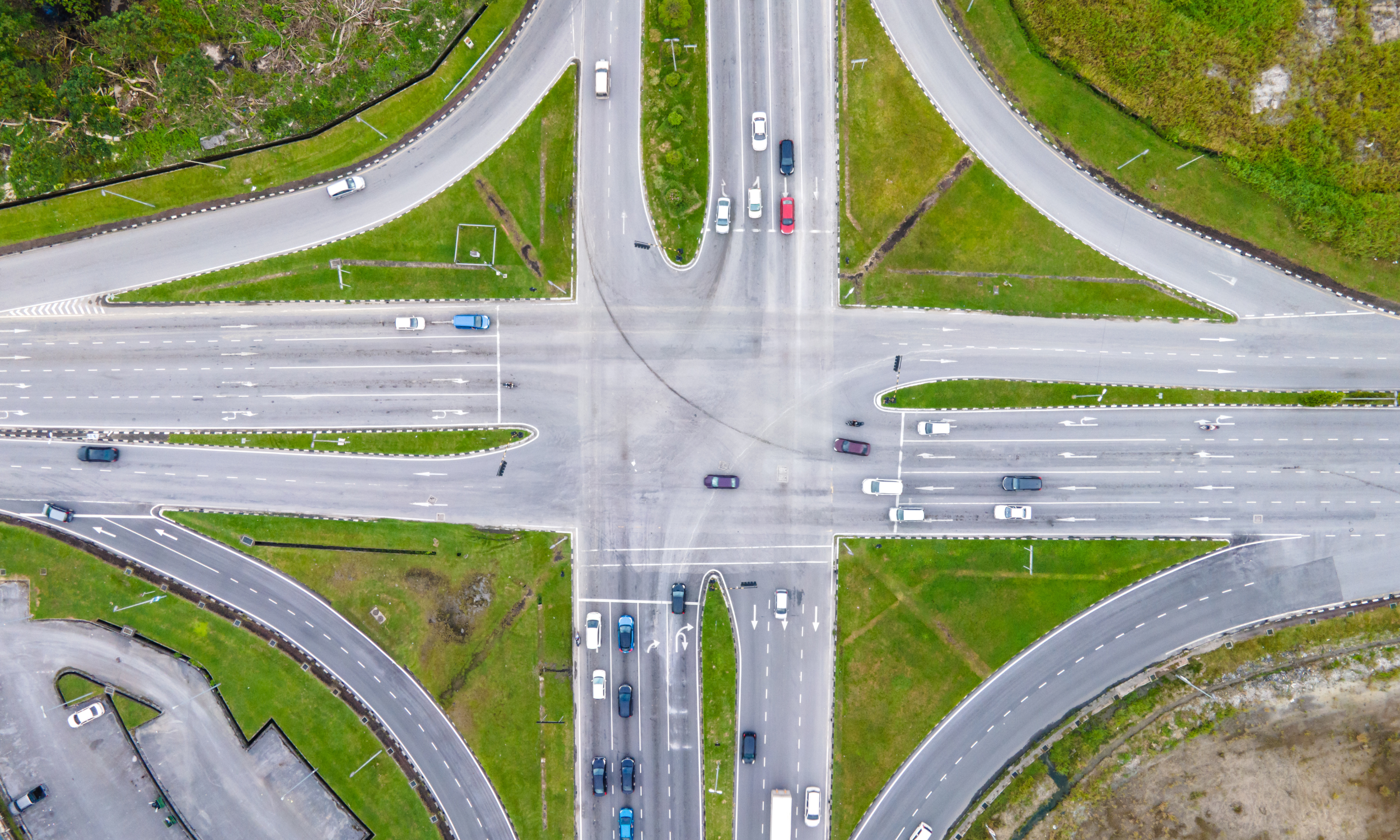
Review FMCSA commercial truck crash trends to see how common these incidents are among occupational drivers across Washington.
Construction and Utility Workers in Pullman Often Share Sites With Trucks
Pullman’s utility teams and road crews often work near moving semis, municipal vehicles, and industrial freight haulers. These workers face constant danger from inattentive drivers who ignore cones, speed through work zones, or back into restricted areas without a spotter. If you were hit while performing your job, and the truck was owned by a third party, you may be entitled to file an injury claim outside the L&I system.
We review project permits, subcontractor records, and vehicle logs to identify all at-fault parties. When freight haulers or vendors disregard posted warnings or state work zone laws, they open themselves to liability. Our firm holds them accountable for the physical, emotional, and financial toll their negligence causes.
Farm and Agricultural Workers Struck by Passing Trucks Near Job Sites
Whitman County’s harvest season puts Pullman workers in close contact with grain haulers, crop trucks, and semis traveling to processing plants. These vehicles often enter work zones without proper signaling or awareness of nearby crews. When a passing truck injures a worker on the edge of a field, a farm road, or a transfer lot, third-party injury claims become essential.
Our legal team handles these complex rural truck crash cases. We secure carrier records, driver certifications, and safety training documents to prove how the crash could have been prevented. These claims help injured workers recover beyond what any workers’ compensation system offers.
Speak With a Pullman Truck Accident Attorney Before the Evidence Disappears
Truck crash scenes fade fast in Pullman. Skid marks get cleaned. Dashcams get overwritten. Witnesses leave town. If you wait, you lose leverage. At Bernard Law Group, we move quickly because delay always benefits the trucking company, not the injured. From day one, we collect the evidence that proves fault and protects your rights. Whether your wreck happened near U.S. 195, Airport Road, or right off Grand Avenue, we know what it takes to get results in Whitman County.
We represent injured drivers, students, workers, and families after devastating collisions involving semis, commercial haulers, and delivery trucks. Our team handles the legal battle so you can focus on healing. We deal with insurance companies, corporate attorneys, and medical documentation while you recover.
You do not need to face a trucking company or their insurance carrier alone. We will answer your questions, review your records, and explain your legal options without pressure or cost.
Call (206) 312-3908 now to speak directly with a truck accident attorney or contact us online. We are available 24 hours a day, 7 days a week. If you cannot come to us, we will come to you.
Our firm works on contingency, which means we do not charge fees unless we recover compensation. We front all costs. You pay nothing up front. This model gives you access to experienced legal support without risk. Whether your case settles in mediation or goes all the way to trial, we will be ready.
We have recovered over $500 million for injured clients across Washington, including those hit by trucks in small towns, farming corridors, and college neighborhoods. Let us fight for the compensation you deserve. Reach out now before critical crash evidence is lost or altered.
Practice Areas
Trust Us With Your Personal Injury Claim
If you or a loved one have been injured, Bernard Law Group will fight for you every step of the way. We will give our all to secure the compensation you rightfully deserve.
Contact usfor a free consultation.
Phone: (206) 312-3908
